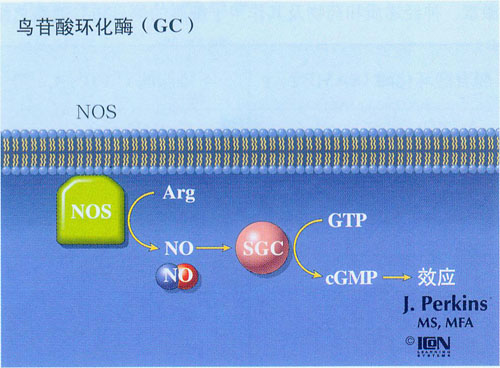一项在小鼠中的新的研究报告说,肠道激素的一种受体在脑中也有功能,如果该受体在脑中丧失的话会使注意力受到影响。
这些发现提示,这种受体(称作鸟苷酸环化酶- C)可能在注意缺陷多动障碍(简称多动症或ADHD)的发展中起着某种作用。
人们已知鸟苷酸环化酶- C是在肠道中表达的,但Rong Gong及其同事如今显示,在小鼠中,该受体还会在中脑(这是中枢神经系统中的与视觉、听觉、运动控制、睡眠与觉醒、警觉性和温度调控有关的部分)神经元中表达。
研究人员发现,鸟苷酸环化酶- C的功能是控制行为并会对神经递质多巴胺做出反应。多巴胺神经元功能障碍与数种人类的神经精神性疾病有关,例如AS ADHD和精神分裂症。研究人员发现,因为基因改变而缺乏鸟苷酸环化酶- C表达的小鼠会显现出类似人类ADHD样的行为异常。了解鸟苷酸环化酶- C受体信号控制可帮助研究人员寻找到某些神经精神性疾病的根源,并可发现可能的治疗标靶。

鸟苷酸环化酶- C
生物探索推荐英文论文摘要:
Role for the Membrane Receptor Guanylyl Cyclase-C in Attention Deficiency and Hyperactive Behavior
ABSTRACT
Midbrain dopamine neurons regulate many important behavioral processes, and their dysfunctions are associated with several human neuropsychiatric disorders such as Attention Deficit Hyperactivity Disorder (ADHD) and schizophrenia. Here, we report that these neurons in mice selectively express guanylyl cyclase-C (GC-C), a membrane receptor previously thought to be expressed mainly in the intestine. GC-C activation potentiates the excitatory responses mediated by glutamate and acetylcholine receptors via the activity of cGMP-dependent protein kinase (PKG). GC-C knockout mice exhibit hyperactivity and attention deficits. Moreover, their behavioral phenotypes are reversed by ADHD therapeutics and a PKG activator. These results indicate important behavioral and physiological functions for the GC-C/PKG signaling pathway within the brain and suggest new therapeutic targets for neuropsychiatric disorders related to the malfunctions of midbrain dopamine neurons.







